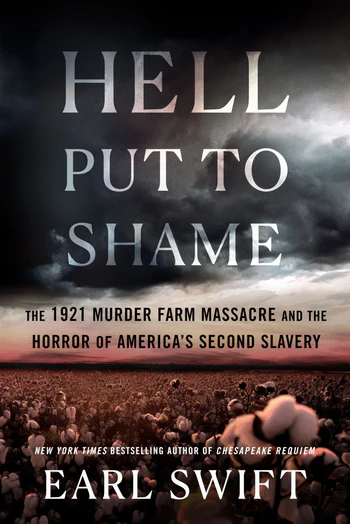Hell Put to Shame The 1921 Murder Farm Massacre and the Horror of America's Second Slavery
Availability :
In Stock
₹ 1,305.00
M.R.P.:₹ 1450
You
Save: ₹145.00 (10.00% OFF)
(Inclusive
of all taxes)
Delivery:
₹ 0.00 Delivery charge
Author:
Earl Swift
Publisher:
Mariner Books
ISBN-13:
9780063265387
Publishing Year:
4/2/2024
No. of Pages:
432
Weight:
630 g
Language:
English
Book Binding:
Hardcover











